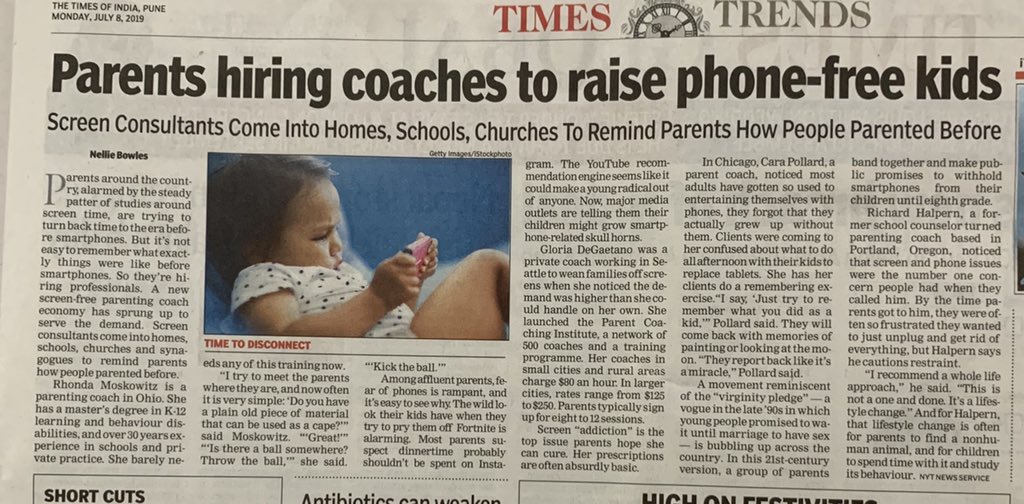Subject: Parenting
And I was a Navy SEAL Officer for over a decade.
"Mommom, is that your butt?"
My wife said "No buddy, that's not my butt."
"Oh, then it's your milk-butt!"
I'm not working for myself or my ego anymore.
I'm working for THEM.
Routine/predictability is all-important here.
Often this means they restrict the foods they will eat.
Often we've let some routines slip or let chaos enter the house somehow.
Once we tighten back up, the kids go back to their normal eating habits.
simplicityparenting.com
Often you can get them to do what they need to do (vs. what they want to do) by simply saying:
"I know you really want to play with your Legos right now, and we can do that when we get home, but right now we have to..."
I owe my children everything.
My children owe me nothing.
If I want to be in their lives when they're grown, I have to earn it. Every day.
Even for grandparents and parents.
Coerced physical contact teaches children that their bodies are not their own.
Upside: when you get a hug, you know they mean it.
Some people have a lot of work to do.
I am naturally a terrible parent. I have to intellectualize everything to get it right. Often I fail.
My wife is absolutely brilliant. Her instincts are almost always right.
You have no idea how powerful a positive message it sends to your children.
See what happens in the extreme situations where children are not touched:
npr.org/sections/healt…
Just be prepared to suppress your (my) pathological for perfection and efficiency.
Instead, your OKR for success should be: how much joy/fulfilment your kids experience.
I used to think that gender differences in their preferences/behaviors (pre-puberty) were almost entirely socially-constructed.
That idea seems laughable now.
Just look on Instagram for #boymom and you'll see
Neither of the Tiger Mom's children still play the instrument their mother chose for them
Much more important: how do the teacher talk to the children?
A proxy for this: check suicide rates at the HS the elementary school feeds into.
That's not to say you shouldn't give them space when they want it. But if they need your attention and you feel they're being needy, give it to them anyways.
Put yourself in a psychological position to see them and hear them. Let yourself feel how much you love them when you're talking to them.
ESPECIALLY when you're having a hard conversation.
And they are always watching.
Fairy tales (and some real people) talk about this immediate, life-altering bond on first contact.
For many fathers, this doesn't happen.
"This was a huge mistake."
Combined with:
"I'm a terrible person for not immediately falling head-over-heels in love with my child."
I felt an immediate obligation/pressure to take care of him, but it wasn't the new-father-high/immediate swoon that PG wrote about in his essay.
So I felt like a failure. A trapped failure.
So, to every new father struggling with this:
IT GETS BETTER.
What feels like a huge mistake will be one of your life's greatest gifts. It just might take a while. And that's okay.
If that seems fucked up, it is.
This doesn't teach your child to "self-soothe."
It teaches them to give up hope you will be there for them when they need comfort.
That is probably not the psychology you want imprinted on your children.
Sometimes you can almost SEE their neural pathways connecting. Like their brain is wiring itself right in front of you.
Option A: Get mad, they shut down, you miss out.
Option B: Ask them calmly and lovingly about what happened and why. Be prepared to choke up.




